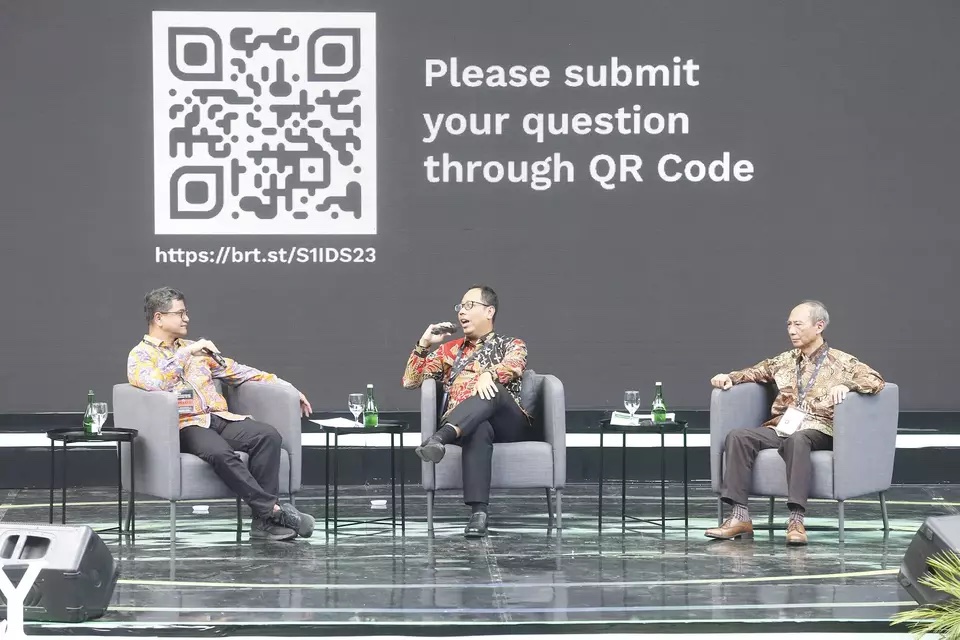Jakarta, 26 October 2023 – Since its inauguration by President Joko Widodo (Jokowi) on September 26, the Indonesia Carbon Exchange (IDX Carbon) has surpassed the performance of similar exchanges in Malaysia and Japan.
The Indonesia Stock Exchange (IDX) has introduced the latest developments in the early stages of its carbon exchange. The IDX has announced that roughly 460,000 tons of tCO2 equivalent, valued at Rp 29.2 billion (US$ 1.84 million), have already been traded in the carbon market. There are currently 16 active participants, featuring a single seller, PT Pertamina Geothermal Energy Tbk (PGE), and 15 purchasing companies, with an additional 10 participants in the pipeline poised to join the IDX Carbon.
In contrast, Malaysia’s carbon exchange, launched in December 2022, has recorded significantly fewer carbon credit transactions.
“Bursa Malaysia has only seen around 150,000-160,000 tons traded year to date. This means we have traded nearly three times as much in a shorter time frame,” said Ignatius Denny Wicaksono, Head of the Business Development Division at IDX, during a session at the BNI Investor Daily Summit 2023 held at Hutan Kota by Plataran, Senayan, Jakarta, on Tuesday.
Additionally, Ignatius pointed out that Japan’s carbon exchange, launched on October 11, has traded fewer than 10,000 tons, making Indonesia’s performance over 50 times greater.
Ignatius explained that one of the key initiatives to stimulate carbon exchange trading is the introduction of a brokerage concept. Under this concept, brokers will be responsible for acquiring carbon units.
“We are currently collaborating with the Financial Services Authority (OJK) to conduct a comprehensive study and put forth proposals for establishing brokerage services in the securities market. This collaborative effort, supported by exchange members, aims to enhance the carbon exchange,” he said.
Denny said the IDX is eagerly awaiting the formulation of international policies governing carbon trading. The moment IDX Carbon gains international recognition, it is expected that demand will experience a significant upsurge, fully realizing its potential.
The drive for carbon trading is further bolstered by state-owned enterprises (SOEs) committed to emissions reduction through the acquisition of carbon units. Denny mentioned that the government mandates all SOEs to develop a net-zero emission roadmap in alignment with government-prescribed objectives. In practice, SOEs must actively pursue internal emissions reduction efforts before engaging in the procurement of carbon units.
Denny said carbon exchange trading operates under two schemes: government-imposed mandatory emissions limits and voluntary emissions reduction initiatives by private entities. Companies participating in these schemes have the opportunity to either trade carbon credits or buy them. This approach not only facilitates the attraction of investors but also opens avenues for securing funding from financial institutions.
In relation to the Technical Emission Cap Agreement for companies (PTBAE-PU), Denny said around 90 power plants have been registered. He emphasized that greater involvement of power plants would be more beneficial, especially in light of the possible introduction of a government-imposed carbon tax, which could result in an escalation in the price of carbon credits.
In support of the strategies outlined, BEI remains committed to actively conducting public awareness campaigns and enhancing clarity in accounting practices. They are currently in dialogue with the Indonesian Institute of Accountants (IAI) to offer guidance on accounting principles. Simultaneously, BEI is collaborating with the Financial Services Authority (OJK) to establish the role of banks within the realm of carbon trading.

